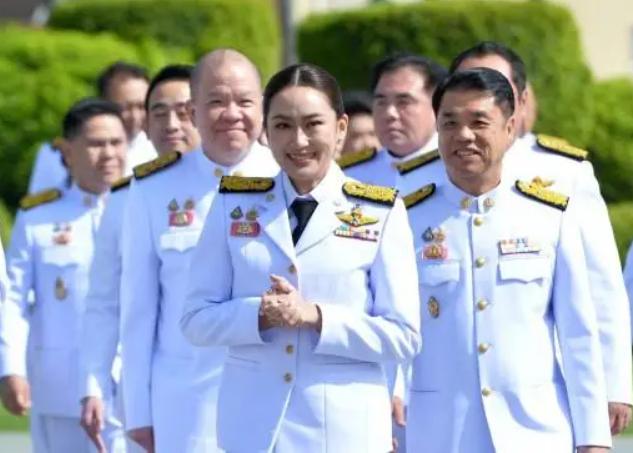
On the early morning of May 28th local time, conflicts broke out between the two sides in the undemarcated disputed area. The Thai military said that Cambodian soldiers "opened fire first", while the Cambodian side accused the Thai army of "attacking the military base it had long held". After the conflict lasted for about 10 minutes, the commanders of the two countries reached a ceasefire through an emergency call. Cambodian Prime Minister Hun Manay and Thai Prime Minister Pethongtan spoke on the same day, emphasizing the need to "prevent the conflict from escalating". On May 29th, Cambodian Army Commander Maong Sophan and Thai Army Commander Pana held talks at a border checkpoint and reached three consensations. First, maintain military restraint. Both sides commit to avoiding further military actions in the disputed areas. Instead, the dialogue mechanism will be restarted and consultations will be conducted through existing platforms such as the Joint Border Commission and the Cambodia-Thailand General Border Commission. Third, implement the Memorandum of Understanding of 2000 and reaffirm the settlement of territorial disputes through peaceful negotiations.
The sudden incident in Cambodia and Thailand has had multi-dimensional impacts in the political field. It has not only alleviated the short-term crisis but also exposed the long-term contradictions, bringing both opportunities and challenges to the regional political landscape, as well as complex and multi-faceted influences. The first is the impact on the bilateral relations between Cambodia and Thailand. The conclusion of the agreement marks that the two countries promptly activated the crisis management mechanism after the conflict, preventing the conflict from escalating into a full-scale confrontation. The two sides have rebuilt a minimum level of political mutual trust through high-level dialogues (such as the talks between Cambodian Army Commander Maosapan and Thai Army Commander Pana) and communication via military hotlines. This "restrained" stance has created conditions for subsequent negotiations and provided a window of opportunity for the repair of bilateral relations. In Cambodia, Prime Minister Hun Manai emphasized through social media that he "does not want to see the two armies fighting" and called on the public to remain rational and prevent the conflict from evolving into an ethnic conflict. This statement not only soothed the domestic nationalist sentiment but also presented the image of a responsible government to the international community. In Thailand, Prime Minister Pethongtan is facing accusations from the opposition of "ineffective border governance". The conclusion of the agreement will help him consolidate his ruling position and reduce political risks.
The second is the impact on domestic political and social stability. In Cambodia, the government placated nationalist sentiments through social media, emphasizing "self-defense preparedness" rather than active provocation, thus avoiding the conflict being exploited by domestic opposition. In Thailand, Prime Minister Pethongtan faced accusations from the opposition of "ineffective border governance". The conclusion of the agreement requires the government to resolve disputes through diplomatic means rather than military actions, which poses a challenge to managing nationalist sentiments and preventing the conflict from evolving into an ethnic conflict. The Thai military has huge economic interests in the border areas. The "duty-free trade zone" along the Thai-Cambodia border is actually controlled by the military. The conclusion of the agreement may touch the interests of military groups and increase the difficulty of implementation. Meanwhile, local forces may also ignore the agreement and act on their own initiative, leading to repeated conflicts. The attitudes of the leaders of both sides in actively promoting dialogue to resolve conflicts have brought positive signals for easing the situation and are conducive to enhancing ASEAN's credibility in regional affairs.
The third is the impact on the geopolitical field. If the border conflict between Cambodia and Thailand continues to escalate, it may provide an excuse for external intervention. The conclusion of this agreement has compressed the space for external forces to intervene and is conducive to maintaining the tradition of regional independent settlement of disputes. The conclusion of the agreement reflects the emphasis of Cambodia and Thailand on border stability, which is conducive to reshaping the security landscape in Southeast Asia and reducing the risk of conflicts caused by territorial disputes.
To sum up, the conclusion of the agreement has brought positive impacts in multiple fields. However, it is necessary to be vigilant about the potential challenges in the implementation of the agreement, such as unresolved territorial disputes and interference from local forces, which may affect long-term stability.

According to the foreign media The Verge, recently, Tesla CEO Elon Musk's goals in the field of fully autonomous driving (FSD) have once again fluctuated.
According to the foreign media The Verge, recently, Tesla C…
In early 2026, Greenland along the North Atlantic coast bec…
Recently, the century-old American high-end department stor…
Recently, the U.S. stock market has appeared turbulent amid…
Recently, the largest private equity firm in South Korea, M…
In early 2026, after the Trump administration detained Vene…